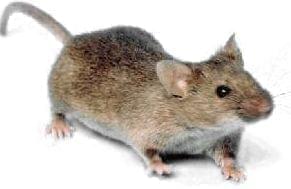Six Cases Of Seoul Virus Traced To Two Rat-Breeding Operations In Illinois

A domesticated brown rat. Wikimedia Commons
State Public Health officials are warning people who own or breed rats to watch out for the Seoul virus.
Six people in Illinois and two in Wisconsin have been found to have the virus, caught from rats that were traced to two rat-breeding operations in Illinois.
Public Health spokesperson Melanie Arnold says the two ratteries, located in the northwest and east-central parts of the state, have voluntarily stopped selling rats.
Rats don’t get sick from the Seoul virus, but they can spread it to people who sometimes show flu-like symptoms -- and in the worst cases, kidney failure. Arnold says the virus can result in death, but only in about 1-2% of cases. Only one of the five people found to have the Seoul virus in Illinois actually got sick.
Beth Chan is a rat breeder in Champaign, who hasn’t been affected the Seoul virus. She won’t breeding her rats again until next fall, but when the time comes, she wants to test for the virus, if she can.
“I’m hoping that they’ll add it to the tests that I can do, just so I can add that to something that I can screen for”, said Chan. “And it’s something that I even am considering just testing myself for, like seeing if I can go to my doctor and be tested for that myself.”
Chan also runs the North American Rat Registry, which records pedigrees for approximately 28,300 rats in the U-S and Canada. Chan says she’s in touch with other rat breeders who are asking questions about the Seoul virus.
“There’s been a lot of concern”, said Chan, “with people asking what’s going on, what have we found out so far? Do we know who’s affected? Do we know who they’ve worked with?”
The Seoul virus is only spread by rats, usually the brown or Norway rat. It can spread from rat to human, but not from person to person. Arnold with the Illinois Department of Public Health says the virus is prevalent in Asia, and its outbreak in two Illinois ratteries is the first time it’s been reported in the U-S --- although there may have been unrecorded cases in the wild.
